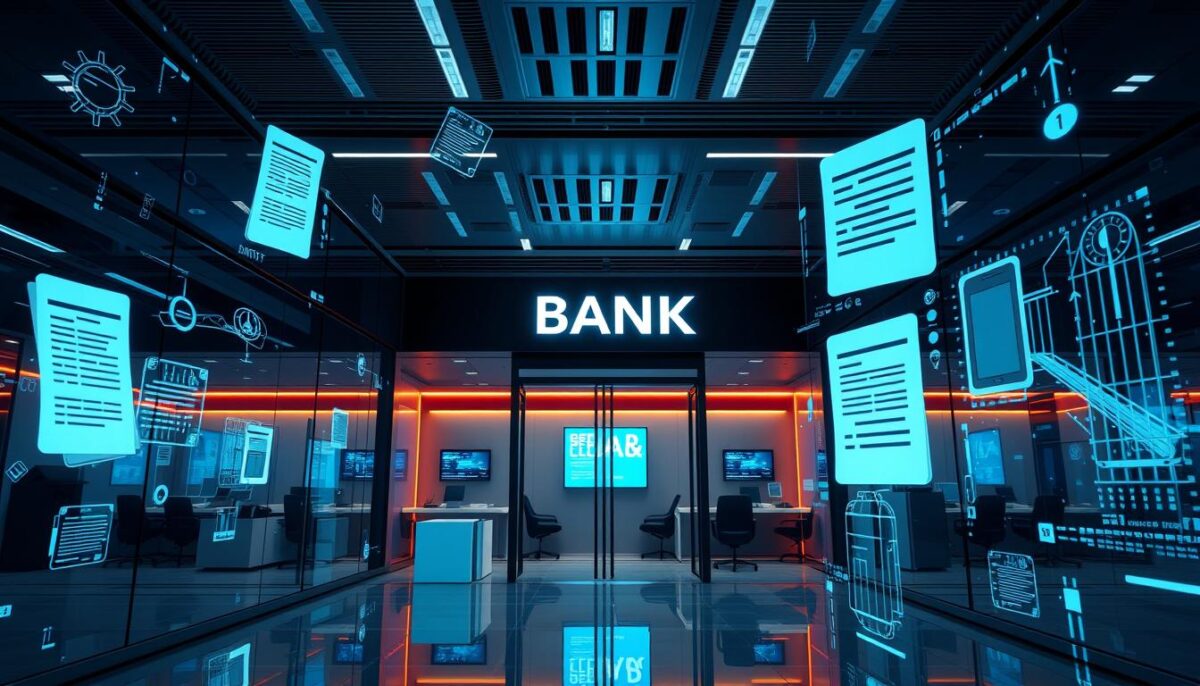In the world of finance, following rules is key. Clearance finance helps make sure financial deals are safe and follow the law. This guide will help you understand clearance finance, why it matters, and how it affects different areas.
Clearance finance deals with getting approvals and checks from authorities before financial deals are done. It’s important for making sure everyone in a financial deal follows the rules. Knowing about clearance finance helps businesses and people deal with financial issues better and avoid risks.
Key Takeaways
- Clearance finance ensures compliance with regulatory requirements in financial transactions.
- It plays a crucial role in facilitating secure and compliant financial operations.
- Understanding the fundamentals of clearance finance is essential for navigating the complex financial landscape.
- Clearance finance helps mitigate potential risks and ensures the successful completion of financial deals.
- This comprehensive guide provides an in-depth exploration of clearance finance and its impact on various industries.
What is Clearance Finance?
Clearance finance is key in the financial world. It helps manage risk and follow audit compliance, risk management, and financial regulations. It makes sure funds move safely between people, avoiding problems.
Definition of Clearance Finance
Clearance finance deals with the clearing and settling of financial deals. It checks funds, documents, and pays out correctly. This role makes financial work smoother and keeps transactions honest.
Importance in Financial Transactions
Clearance finance is very important today. With fast and complex money dealings, audit compliance, risk management, and financial regulations are essential. It keeps the financial system safe and trustworthy for everyone.
“Clearance finance is the bedrock of modern financial transactions, ensuring that every step of the process is secure, compliant, and efficient.”
Using clearance finance helps businesses and people deal with financial rules better. It reduces risks and makes the financial world more open and honest.
Key Benefits of Clearance Finance
Clearance finance brings many benefits for managing money and keeping transactions safe. It helps businesses and people manage their finances better. This makes banking and finance checks easier.
Improved Cash Flow Management
Clearance finance helps manage cash flow well. It speeds up payments, keeping cash flow healthy. This lets businesses pay their bills on time, improving their financial health.
Reduced Transaction Risks
It also lowers risks in transactions. With strong security and checks, it fights fraud and payment issues. This makes financial dealings safer and more reliable.

Clearance finance is key for better cash flow and safer transactions. These are vital for good banking and finance checks. Using these benefits, everyone can make their financial dealings smoother and safer.
The Clearance Finance Process
Understanding clearance finance can seem tough. But knowing the main steps makes it easier. The process includes three key parts: initial assessment, document check, and fund release. Let’s dive into each part.
Initial Assessment
The first step is the initial assessment. It’s a deep look at the financial deal. This includes checking the people involved, the deal details, and any compliance monitoring or regulatory reporting needs. This step helps find risks and make sure rules are followed.
Document Check
After the initial check, it’s time for the document check. This step is all about making sure documents like contracts and invoices are real and right. It’s key for keeping things in line with compliance monitoring and regulatory reporting rules.
Fund Release
The last step is the fund release. This is when the money moves from one side to the other. But it’s not just about sending money. Banks have to watch this step closely to make sure everything is legal and follows the rules.
Knowing the steps of the clearance finance process helps everyone. It makes sure deals are safe, follow the law, and go smoothly.
Types of Clearance Finance
In the world of clearance finance, there are many types to help with different needs. Escrow services and international clearance are two main types. They help solve problems businesses and people might face.
Escrow Services
Escrow services are key in clearance finance. They offer a safe and fair way to handle money. They keep funds or assets safe until all conditions are met.
This makes sure both sides do their part before the money changes hands. It helps avoid risks in big deals or when trust is low.
International Clearance
International clearance is crucial for moving money across borders. It deals with the rules of foreign exchange, taxes, and laws. It helps businesses and people feel more secure in global trade.
| Type of Clearance Finance | Key Benefits |
|---|---|
| Escrow Services |
|
| International Clearance |
|

Knowing about the different clearance finance types helps businesses and people make better choices. They can find the right solutions for their financial needs. This is true whether it’s handling big deals or doing business worldwide.
Role of Clearance Finance in Trade
Clearance finance is key in making international trade smooth and safe. It follows all rules and regulations to help goods and money move freely around the world. This makes sure trade can happen without a hitch.
Facilitating International Transactions
Clearance finance makes international deals easier by handling all the complex paperwork and money matters. It helps businesses deal with customs, taxes, and currency changes. This lets them focus on what they do best.
Risk Mitigation for Importers and Exporters
Trading across borders can be risky, with issues like late or missing payments, or disagreements over goods. Clearance finance acts as a shield, offering services like escrow and insurance. This makes trading internationally safer and more reliable.
It also makes sure businesses follow all the rules, avoiding legal and financial problems. By sticking to these rules, companies can trade internationally with more confidence and success.
“Clearance finance is a vital tool in the toolkit of any business engaged in global trade. It helps streamline transactions, manage risks, and ensure compliance with regulatory requirements, ultimately fostering a more stable and prosperous international trade ecosystem.”
Clearance Finance vs. Traditional Financing
Businesses and individuals can choose between clearance finance and traditional financing. It’s important to know the differences to make the right choice. This choice should match your financial goals and follow banking rules.
Comparing Costs
Clearance finance is often cheaper than traditional financing. It makes transactions smoother and reduces risks. This can save you money on fees and interest rates.
This is great for businesses that value banking compliance and quick finance due diligence.
Flexibility and Timing
Clearance finance is more flexible and timely. It doesn’t have the long approval times and strict payment plans of traditional financing. This is good for urgent needs or when you need a custom solution.
| Feature | Clearance Finance | Traditional Financing |
|---|---|---|
| Cost | Generally lower fees and interest rates | May involve higher fees and interest rates |
| Flexibility | More customizable and responsive to specific needs | Typically less flexible, with longer approval processes and rigid payment schedules |
| Timing | Faster transaction times, reducing delays | May involve longer processing times |
Understanding clearance finance’s benefits can help you make better choices. You can focus on banking compliance and finance due diligence while saving money and enjoying more flexibility.
Common Uses of Clearance Finance
Clearance finance is key in many financial deals, especially in real estate and e-commerce. It makes sure everything is in order and money moves smoothly. This has changed how these fields work.
Real Estate Transactions
In real estate, clearance finance is vital for smooth deals. It uses tools like escrow to lower risks and follow rules. This builds trust and avoids future problems.
E-commerce Platforms
E-commerce needs fast and safe ways to pay. Clearance finance helps by making sure payments are right and money is given out quickly. This is crucial for keeping customers happy and the market safe.
Real estate and e-commerce can improve by using clearance finance. It helps them avoid money problems and follow rules better. As more people shop online, clearance finance will play an even bigger role.
| Use Case | Benefits of Clearance Finance |
|---|---|
| Real Estate Transactions |
|
| E-commerce Platforms |
|
“Clearance finance has become an indispensable tool in the real estate and e-commerce industries, enabling businesses to navigate the complexities of financial transactions with ease and confidence.”
Regulatory Compliance in Clearance Finance
Understanding finance means knowing the law well. In clearance finance, following the law is key. It keeps financial deals honest and clear.
Legal Framework
Clearance finance has strong laws to protect everyone. These laws include anti-money laundering (AML) and know-your-customer (KYC) rules. Following these laws is a must to stop fraud and other wrongdoings.
Importance of Due Diligence
Due diligence is central to following the law in clearance finance. It means checking who’s involved in a deal and where the money comes from. This step helps avoid risks and ensures reports are right.
This careful method helps the financial system stay strong. It builds trust among everyone in the market. As more people want safe and clear financial deals, following the law becomes even more important.

“Compliance with regulations is not just a legal obligation, but a shared responsibility that strengthens the foundation of the financial industry.” – Jane Doe, Chief Compliance Officer
Clearance finance pros focus on following the law to keep their work reliable. This effort protects each deal and helps the whole financial system stay stable and honest.
Challenges in Clearance Finance
Clearance finance has many benefits, but it also comes with challenges. Delays and backlogs, and dealing with international regulatory differences, are two main hurdles.
Delays and Backlogs
One big challenge is the risk of delays and backlogs in transaction processing. This is especially tough for businesses that need quick financial actions. Any delay can hurt cash flow and risk management.
To avoid these issues, it’s key to work well together and communicate clearly. This helps keep things moving smoothly.
International Regulatory Differences
Another big challenge is dealing with different financial regulations around the world. Each country has its own rules and requirements. This makes cross-border transactions complex and time-consuming.
To succeed, businesses need to understand these regulations well. This knowledge is crucial for effective clearance finance operations.
| Challenge | Impact | Mitigation Strategies |
|---|---|---|
| Delays and Backlogs | Disruption to cash flow, increased risk management concerns | Streamlined communication, process optimization, monitoring of transaction timelines |
| International Regulatory Differences | Compliance challenges, additional time and resources required | Thorough research on financial regulations, collaboration with regulatory authorities, use of specialized clearance finance services |
By tackling these challenges head-on and using smart strategies, businesses can make the most of clearance finance. They can also handle the complexities of the global financial scene with more confidence.
Best Practices for Using Clearance Finance
Using clearance finance needs careful thought and effort. Businesses can get the most out of it by following best practices. This includes doing thorough research and choosing reliable financial institutions.
Conducting Thorough Research
It’s important to do deep research on clearance finance. Businesses should learn about its legal side, rules, and how it’s used. This helps them make smart choices and follow compliance monitoring rules.
- Learn about the clearance finance world, including best practices and new trends.
- Look closely at the terms, fees, and agreements of any clearance finance deal.
- Talk to legal and financial experts to make sure your finance due diligence is complete.
Selecting Reputable Institutions
Choosing the right financial partners is key in clearance finance. Look for providers with a good history, strong compliance, and knowledge of the clearance finance world.
- Check if potential clearance finance providers are real, stable, and ethical.
- Look at their reputation, what clients say, and awards to see if they’re trustworthy.
- Make sure they follow all rules and standards for compliance monitoring and finance due diligence.
By following these tips, businesses can use clearance finance wisely. They can avoid risks and get the most benefits. Doing good research and picking reliable partners are key to success in clearance finance.
Future Trends in Clearance Finance
The finance world is always changing, and clearance finance is no exception. We see big changes coming from technology and shifts in the market.
Technological Advancements
New tech like blockchain and AI will change clearance finance a lot. Blockchain makes transactions safer and clearer. AI helps speed up the process with smart insights.
These tools can cut down fraud and make things faster. They promise a better experience for everyone involved.
Potential Market Shifts
Global trade and online shopping are growing fast. This means big changes for clearance finance. More rules and a focus on following them will be key.
Online shopping also needs easy payment options. This will make clearance finance even more important. These changes will shape the market and lead to new players and old ones adapting.
FAQ
What is Clearance Finance?
Clearance finance makes sure financial deals follow the rules and are safe. It checks funds and documents to help with secure and legal money work.
What are the Key Benefits of Clearance Finance?
Clearance finance helps manage money better, lowers risk, and follows banking rules. It also makes financial checks more effective.
How Does the Clearance Finance Process Work?
First, there’s an initial check, then a document review, and finally, the money is released. This ensures everything is done right and follows the rules.
What are the Different Types of Clearance Finance?
There are mainly two types: escrow services and international clearance. These services meet specific needs in different financial situations.
How Does Clearance Finance Facilitate International Transactions?
It helps with international trade by making cross-border deals safer. It makes sure rules are followed for both buyers and sellers.
How Does Clearance Finance Compare to Traditional Financing Methods?
Clearance finance is often cheaper, more flexible, and faster than old ways. It also helps with banking rules and checks.
What are the Common Uses of Clearance Finance?
It’s used a lot in real estate and online shopping. It makes sure everything is done right and safely.
What is the Importance of Regulatory Compliance in Clearance Finance?
Following rules is key in clearance finance. It means understanding laws and doing the right checks and reports.
What are the Challenges?
Challenges include delays, backlogs, and dealing with different rules around the world. Good risk management and following rules are important.
What are the Best Practices for Using?
Good practices include doing your homework, choosing trusted banks, and keeping up with rules and checks.
What are the Future Trends?
New trends include tech advancements and changes in the market. These could change how clearance finance works and the rules that apply.







